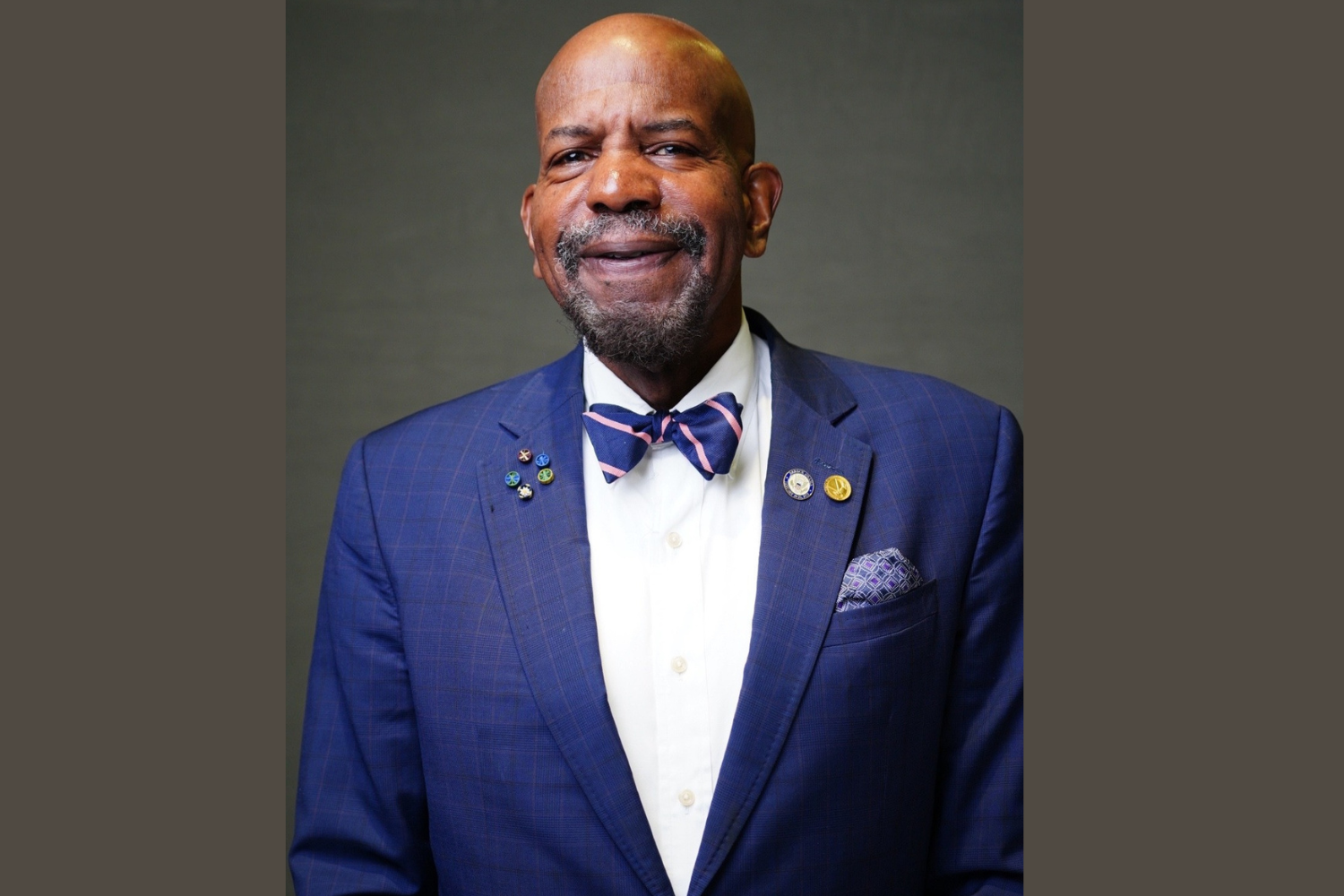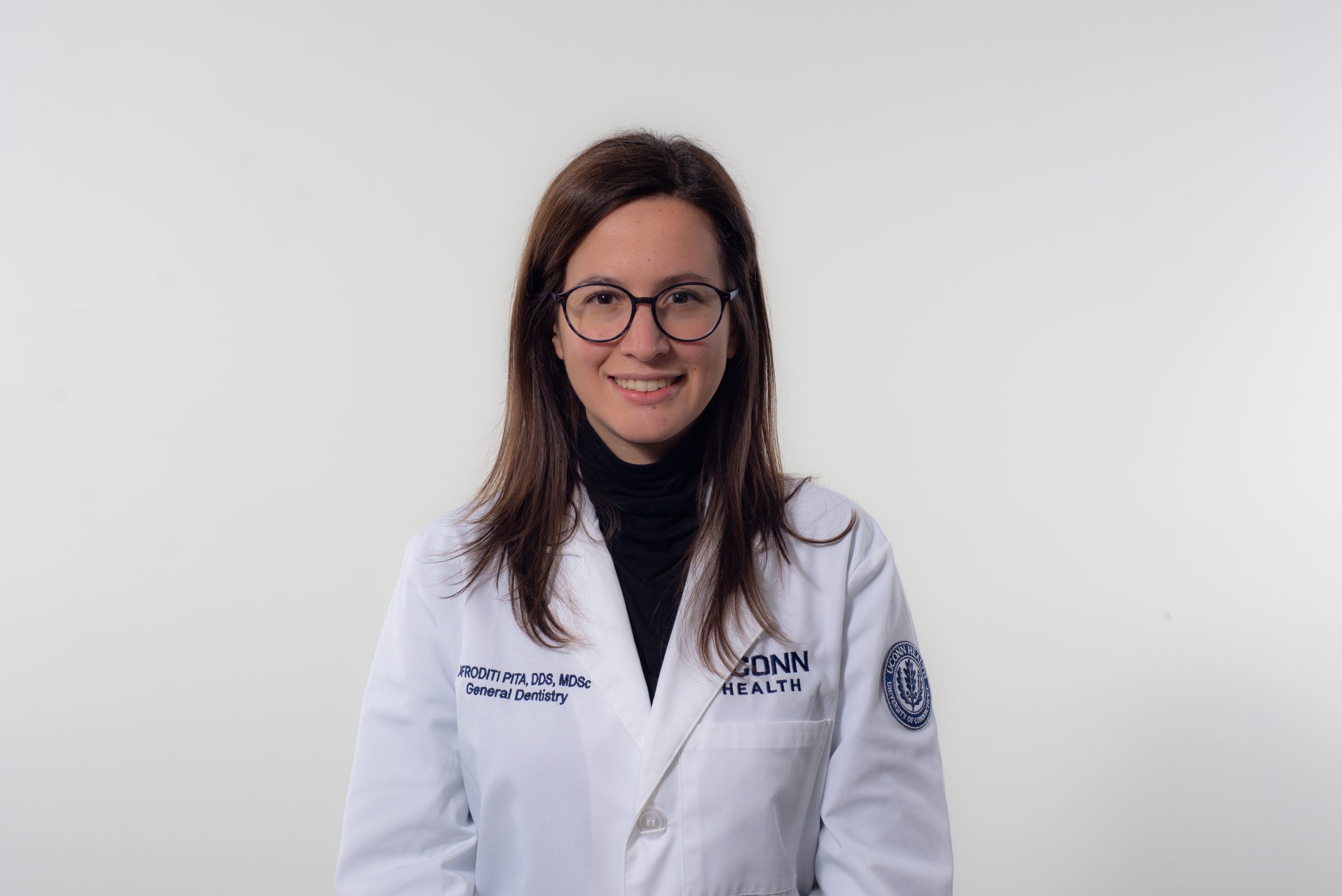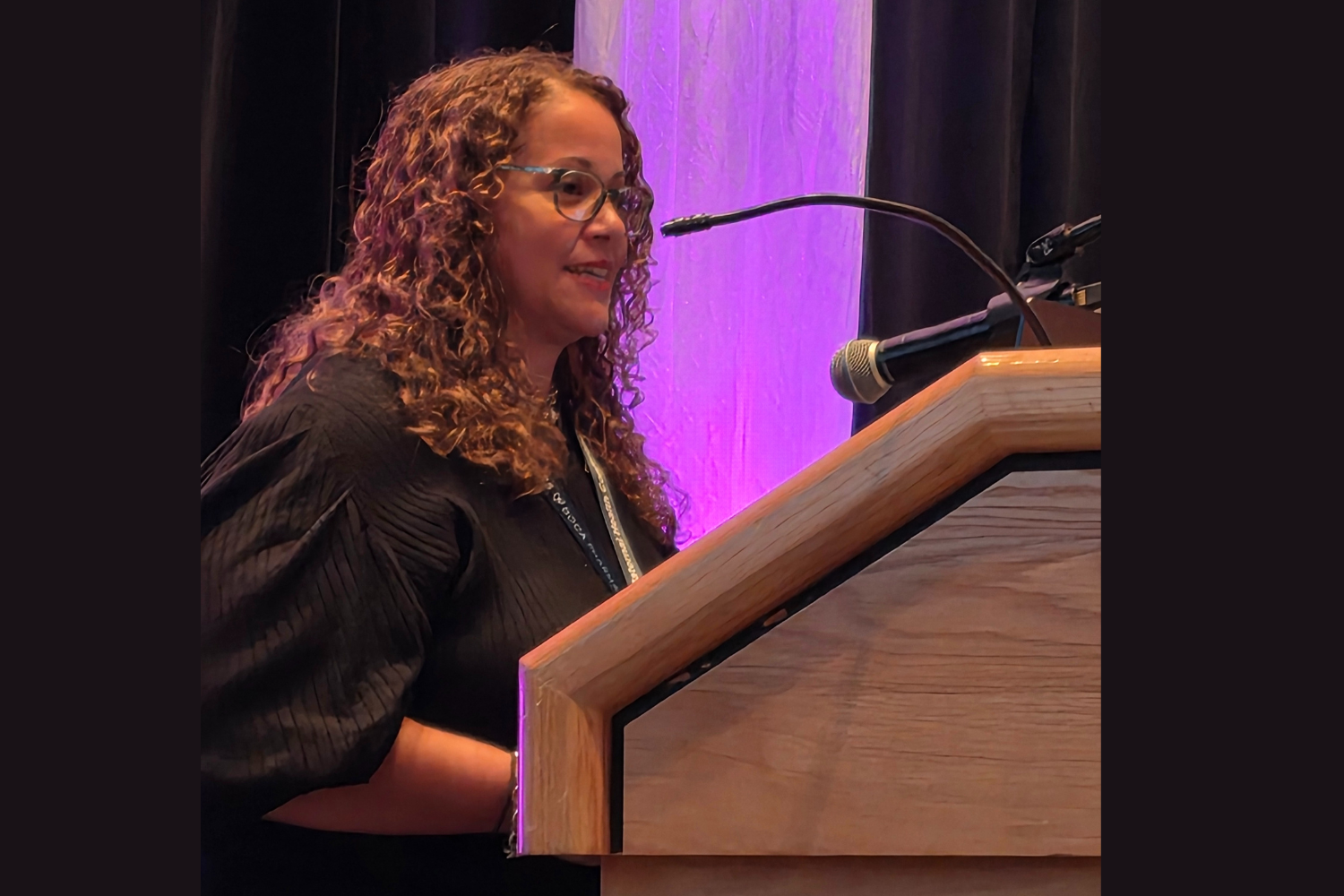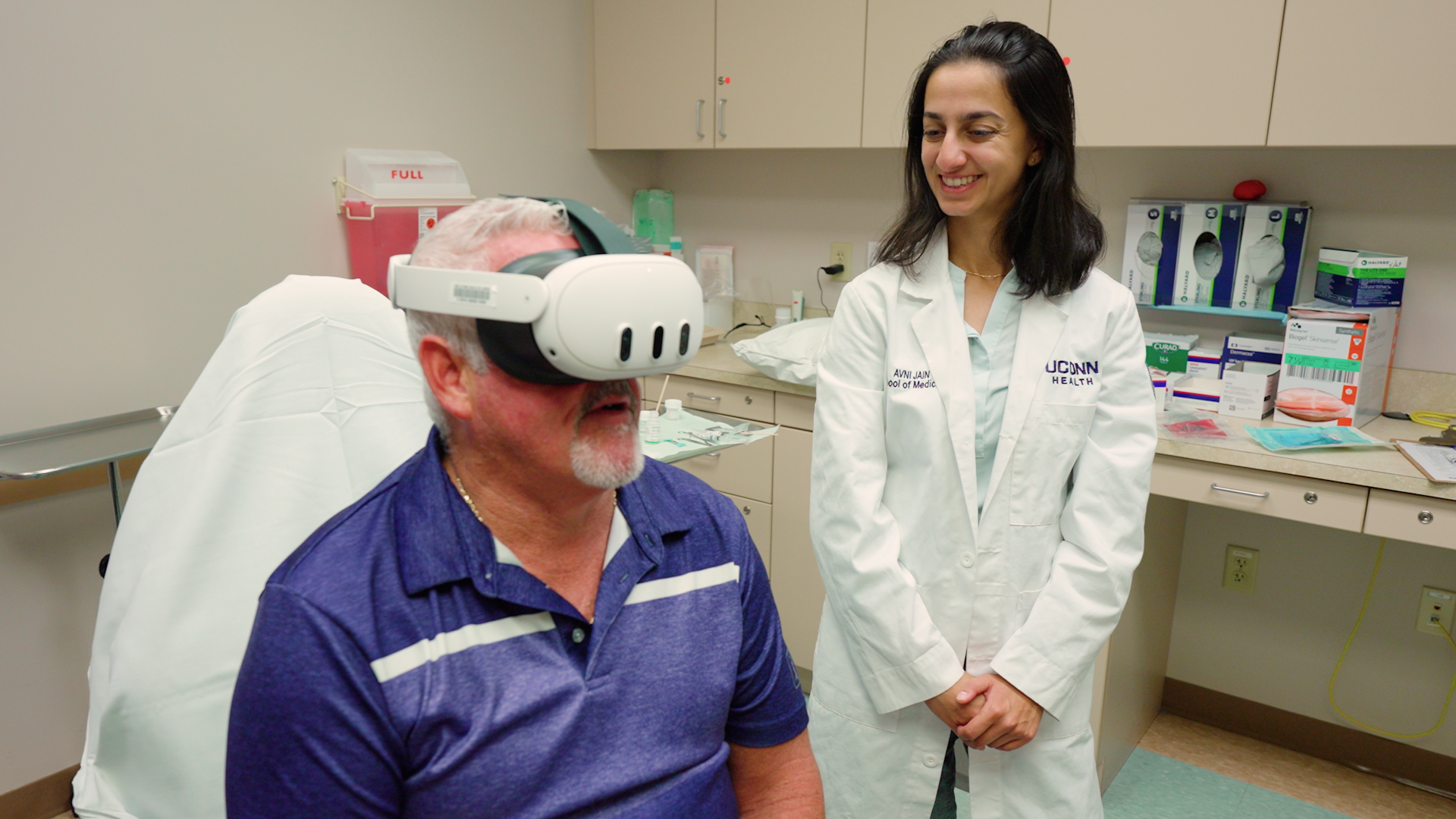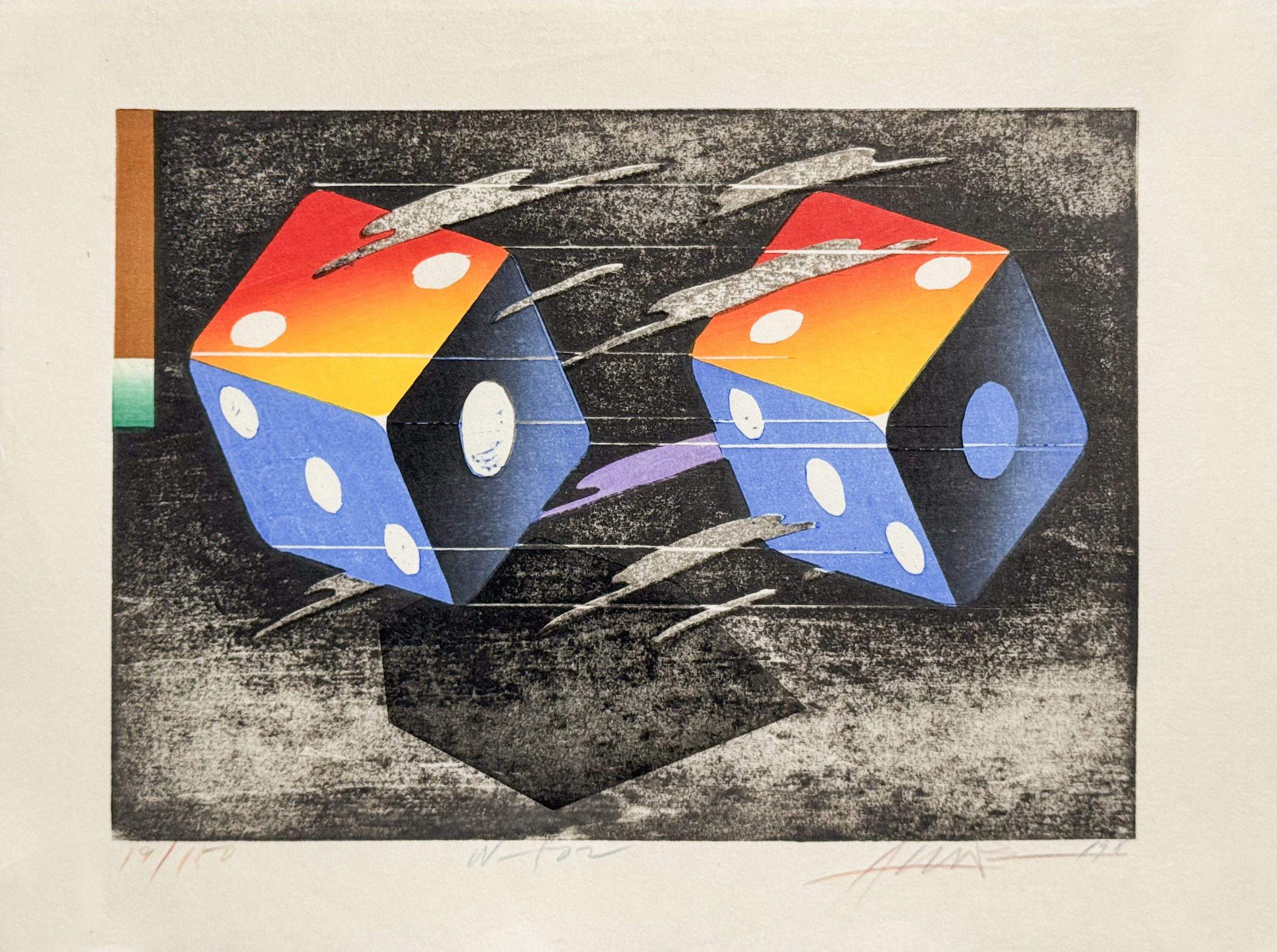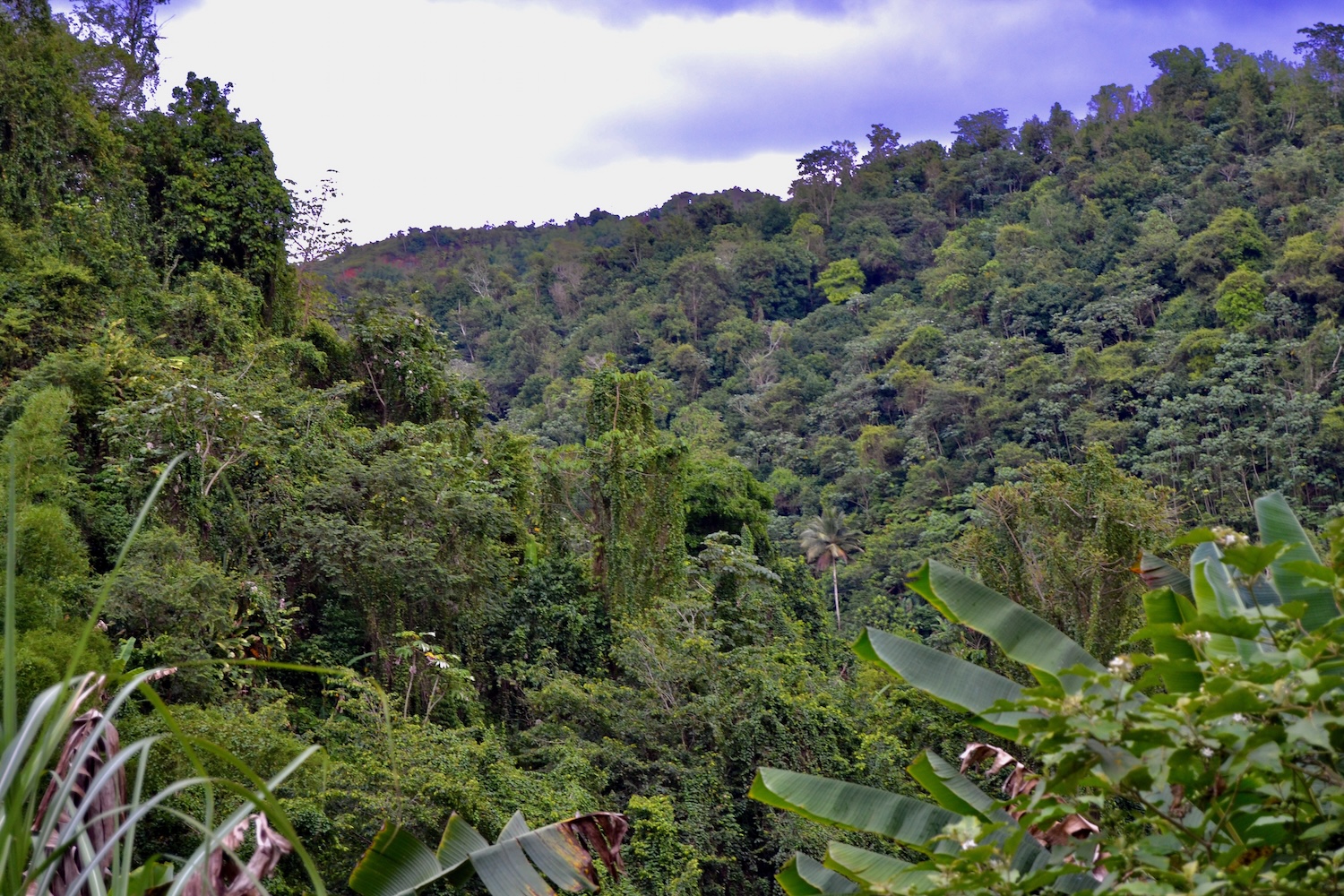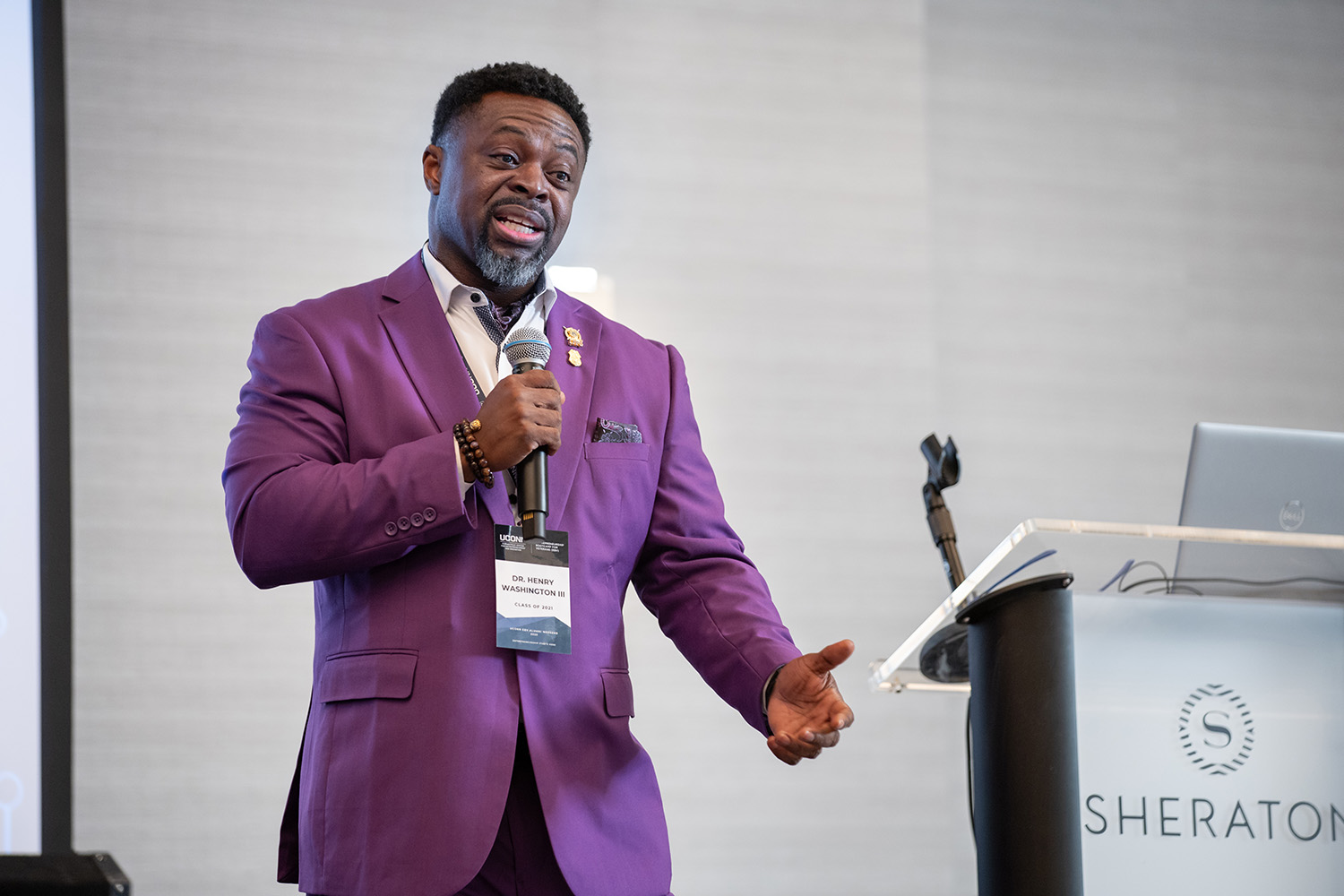Dr. Cato T. Laurencin of UConn Honored by the National Academy of Inventors (NAI)
From being named the 2023 Inventor of the Year by the Intellectual Property Owner’s Education Foundation, to receiving the National Medal of Technology and Innovation in ceremonies at the White House, to his groundbreaking work in regenerative engineering, his name is synonymous with technical achievement.
The National Academy of Inventors (NAI) recently began its profile series and chose Laurencin as the inaugural celebrant. “I was honored to be the first Fellow of the National Academy of Inventors to be profiled in its series,” said Laurencin. In the article he described his work in founding a new field. “The catalyst for me was there was a great need to help people. Regenerative engineering is the first discipline built on convergence, the bringing together insights from disparate fields that, at first glance, may not seem to go together to produce new ways of thinking and new science,” said Laurencin. “This field is about being able to actually do deep integration and deep studies in a number of different areas. It is an intersection that involves deep integration of areas, especially with clinicians in the clinical arena playing a very important role because of how clinicians view regeneration, repair, and healing.”
Laurencin is also featured prominently alongside other distinguished Academy members in the Story of NAI, and NAI Fellows videos, which highlight the achievements of its members and highlight NAI’s impact. Laurencin shares his insights as a long-time Fellow, board member, and transformative figure in the innovation community. “Dr. Laurencin has fundamentally changed the landscape of technology and science by taking risks and challenging the status quo. He was the obvious choice to feature in our videos related to the importance of research and innovation in the world and the impact of the National Academy of Inventors,” said Dr. Paul R. Sanberg, FNAI, president of the National Academy of Inventors.
Laurencin is recognized nationally and internationally for his innovative work in musculoskeletal tissue regeneration. His ground-breaking patents and papers defined the use of polymeric nanofibers for regeneration purposes. He pioneered the design of engineered composites of polymers and ceramics for regeneration. A prime example of his ingenuity is his basic and applied research behind the first successful engineered anterior cruciate ligament (ACL)—the Laurencin-Cooper (L-C) Ligament, heralding new revolutionary alternatives to traditional treatments.
Professor Sir Cato T. Laurencin, M.D., Ph.D., K.C.S.L., is the University Professor and Albert and Wilda Van Dusen Distinguished Endowed Professor of Surgery at the University of Connecticut. He is professor of Chemical and Biomolecular Engineering, professor of Materials Science and Engineering and professor of Biomedical Engineering at the school. He serves as the CEO of The Cato T. Laurencin Institute for Regenerative Engineering an Institute created and named in his honor.
Laurencin is the founder and pioneer of the field of Regenerative Engineering. He is an expert in biomaterials science, stem cell technology, and nanotechnology and the American Institute of Chemical Engineers Foundation created the Cato T. Laurencin Founder’s Award in Regenerative Engineering in his honor. He received the Priestley Medal (highest award) from the American Chemical Society. He received the Founder’s Award (highest award) from the Society for Biomaterials, the Founder’s Award (highest award) from the American Institute of Chemical Engineers, the Von Hippel Award (highest award) from the Materials Research Society, and the James Bailey Award (highest award) from the Society for Biological Engineering.
In addition to being an elected NAI fellow, Laurencin is an elected member of the National Academy of Sciences, an elected member of the National Academy of Engineering, and an elected member of the National Academy of Medicine. He is the first surgeon in the world to be elected to all four of these academies. He is also an elected fellow of the American Academy of Arts and Sciences and an elected fellow of the American Association for the Advancement of Science.
Sir Cato T. Laurencin was bestowed Knight Commander of the Order of St. Lucia, under the auspices of King Charles III of England by the General Governor of Lucia for his exceptional and outstanding service of national importance to Saint Lucia.
Latest UConn Today
- Dr. Afroditi Pita Recognized for Scholarly AccomplishmentsDental school’s Peter J. Robinson Award honors junior faculty
- Dr. Linda Sprague Martinez of UConn Health Disparities Institute Served as Keynote Speaker at Hispanic Health Council’s Annual Maternal Health ConferenceDuring Hispanic Heritage Month Connecticut’s Experts in Maternal Health and Violence Prevention Gathered in Hartford.
- Comfort in 3D: Study Finds Virtual Reality Eases Patient AnxietyEven a simple skin procedure can make someone a little nervous. At UConn Health, a new study is helping patients find calm in an unexpected way – through virtual reality. Led by fourth-year medical student Avni Jain in partnership with dermatology chief resident Dr. Albert Zhou – the study gives patients the chance to slip […]
- Working in Multiples: Counterproof Press Exhibition Displays Art Made At and For UConnSince 2014, whenever a visiting artist would come to the University, they would create an original piece for Counterproof to print – almost like a souvenir of their time here
- A New AI-Based Method to Help Prevent Biological InvasionsAs the world becomes more interconnected, some plants have benefitted from a greater ease in movement from one region to another, while some have become problematic. Some introduced species gain a competitive edge, spreading rapidly, outcompeting native vegetation, and transforming entire ecosystems. These species are known as “invasive,” and they can disrupt food webs, alter […]
- Retired Army Major Wins EBV Alumni Event Pitch CompetitionWashington said his work is not only empowering young people but that it gives his own life greater clarity. “People who don’t know their purpose in life are not clear about what they want, and therefore waste their time on mediocre things,’’ he said.



